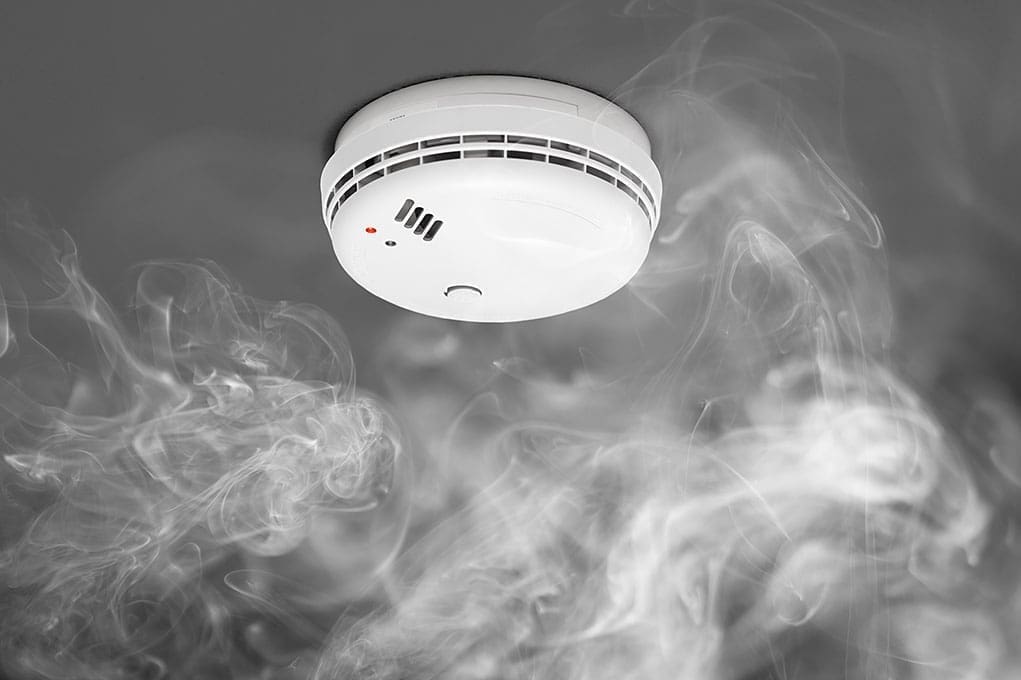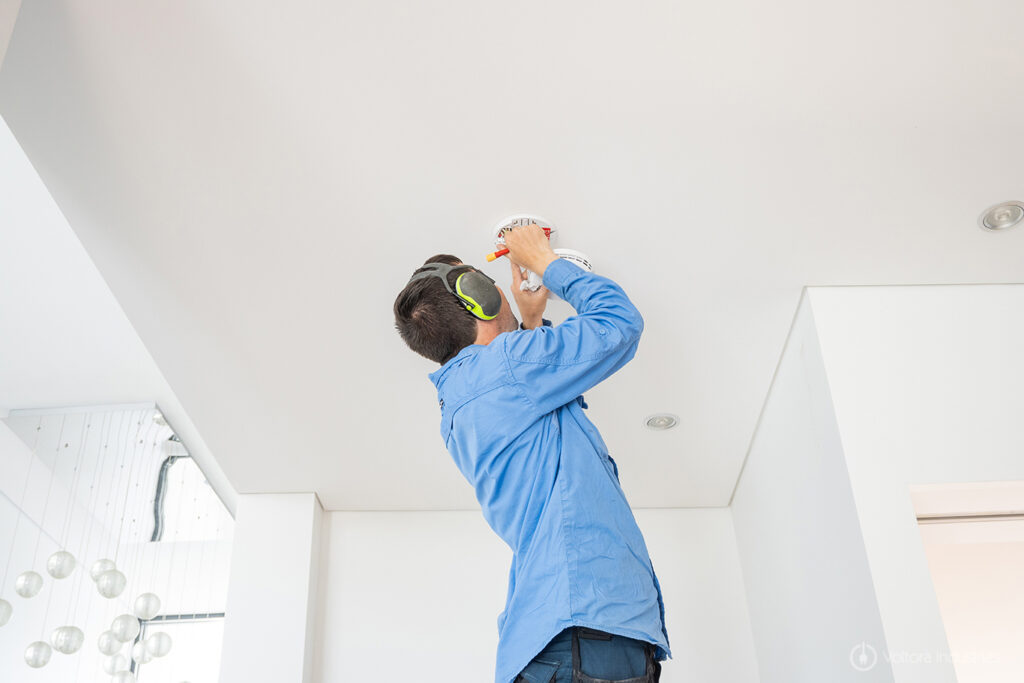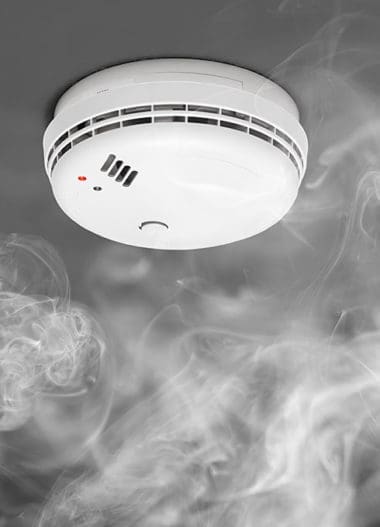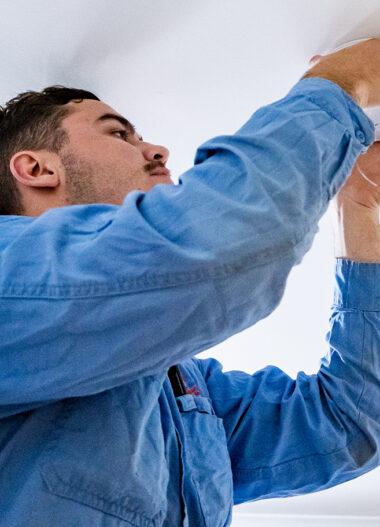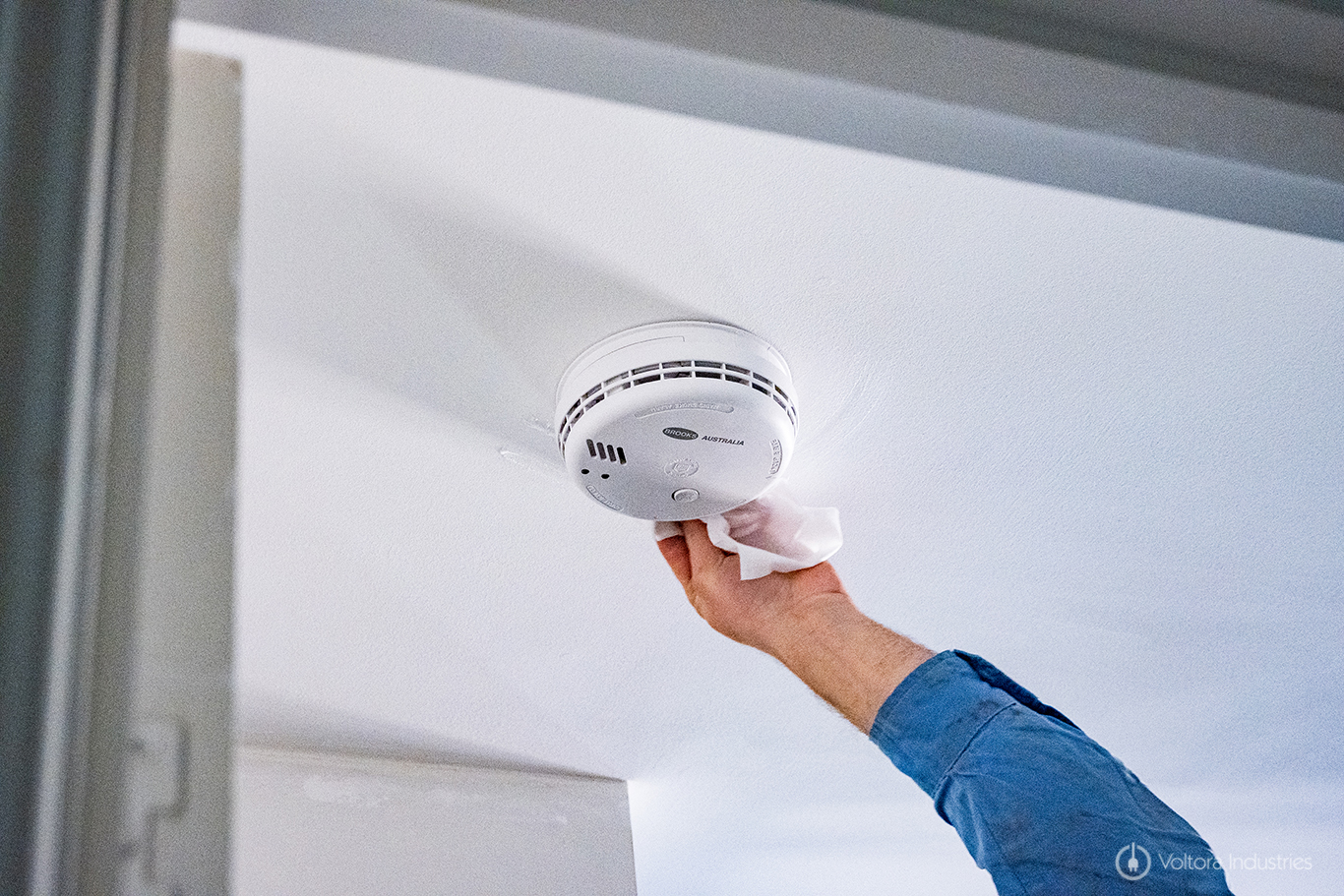
You’re not going to get a heads-up when a fire starts, especially not in the middle of the night. That’s why it makes a huge difference if your smoke alarms are linked. In Queensland, that setup’s not optional anymore, it’s the law.
Not sure what that means for your place? Here’s the short version.
What Are Interconnected Smoke Alarms?
Say there’s smoke in the garage, if your alarms are linked, the one in your bedroom’s going to go off too. That way, you’re not relying on just the closest one to warn you. That matters when you’re asleep or far from where the fire starts.
You can link these alarms through:
- Hard-wiring (directly into your mains power)
- Wireless technology (usually radio frequency)
- Or a combination of both
They all serve the same purpose: wake everyone up fast and get them out safely.
Why They’re More Effective Than Standalone Alarms
If a fire kicks off in a closed room or down in the basement, the hallway alarm might not pick it up in time — or at all. But when your alarms are linked, one going off sets off the rest. That means:
- You’ll hear it sooner and have more time to get out
- Everyone gets the warning, no matter where the fire is
- People sleeping behind closed doors aren’t left out
It’s not a stretch to say these alarms save lives. That’s why the law backs them.
The Law in Queensland (And Why It Matters)
Queensland is leading the charge in smoke alarm safety. By 1 January 2027, every home, whether it’s being sold, rented, or lived in, must meet strict smoke alarm rules.
Here’s what the law says:
- Alarms must be photoelectric and comply with AS 3786–2014
- They must be interconnected (hard-wired or wireless)
- Every bedroom, hallway, and storey needs an alarm
- Power source must be either mains-powered or a sealed 10-year battery.
These changes aren’t just for new homes. They also apply to existing homes. If you’re a landlord, property manager, or planning to sell, compliance is not optional.
Learn more about Voltora’s smoke alarm installation services.
Don’t Confuse Alarm Types: Why Photoelectric Wins
There are two main types of smoke detectors:
- Photoelectric: Best for smouldering fires. These detect visible particles early, precisely what you need in most residential settings.
- Ionisation: Respond faster to flaming fires but miss slow-burning ones. They also contain a small amount of radioactive material.
Queensland law clearly favours photoelectric models, and for good reason. They trigger faster, give fewer false alarms, and are safer overall.
Where Should You Install Smoke Alarms?
The rules are clear in Queensland:
- Every bedroom
- Hallways connecting sleeping areas
- At least one on every storey, including basements
No hallway? Stick one near the bedroom door. And if you’ve got more than one floor, you’ll need alarms on each — even the ones without bedrooms.
Pro tip: Install away from vents, fans, and kitchens to avoid false alarms.
Need help placing them properly? Talk to Voltora’s residential electricians.
Hard-Wired vs Battery-Powered Alarms
Hard-Wired Alarms
- Connected to your home’s power
- Come with a backup battery
- Must be installed by a licensed electrician
Wireless Alarms
- Use sealed 10-year lithium batteries
- Easier to install (great for retrofitting older homes)
- Just as practical when interlinked properly
Whichever you choose, the most important thing is that they meet the AS 3786–2014 standard. Get in touch with the Voltora team if you have any questions about that!
Smoke Alarm Maintenance: Yes, It’s Your Job
Installing the right alarms is just the first step. Keeping them working is critical:
- Test monthly (press the button on each one)
- Clean every 6 months (dust can block sensors)
- Replace every 10 years (yes, even if they still beep)
If your alarm won’t stop beeping, check this guide from Voltora before tossing it.
Need Help? Voltora’s Got You Covered
Don’t leave something this important to guesswork. Voltora Industries is a Master Electrician-accredited provider, serving Brisbane, the Gold Coast, Sunshine Coast, Ipswich, and Melbourne. With over 7,000 electrical installs under our belt, we handle:
- Smoke alarm upgrades and full-home interconnection
- Switchboard checks to make sure your electrical system is safe and up to the task
- Residential electrical services for everything from renovations to safety upgrades
Doesn’t matter if it’s your own place or a rental, they’ll sort it out and make sure everything’s up to code.
Book a smoke alarm check or installation today.
Common Questions (FAQ) about Interconnected Smoke Alarms
Why are interconnected smoke alarms better?
They give a faster, building-wide alert, especially crucial when people are sleeping or far from the fire source.
Why does the law require photoelectric alarms?
They detect smouldering fires earlier and more reliably. Ionisation models can miss these fires altogether.
Why alarms in every bedroom?
People often sleep with doors closed. Separate alarms mean every sleeping area is protected.
Why non-removable 10-year batteries?
It guarantees the alarm stays powered, so no one forgets to change the battery.
Why must alarms follow AS 3786–2014?
This Australian Standard guarantees performance and safety. It’s a sign that your alarm is working correctly.
Lets get started

